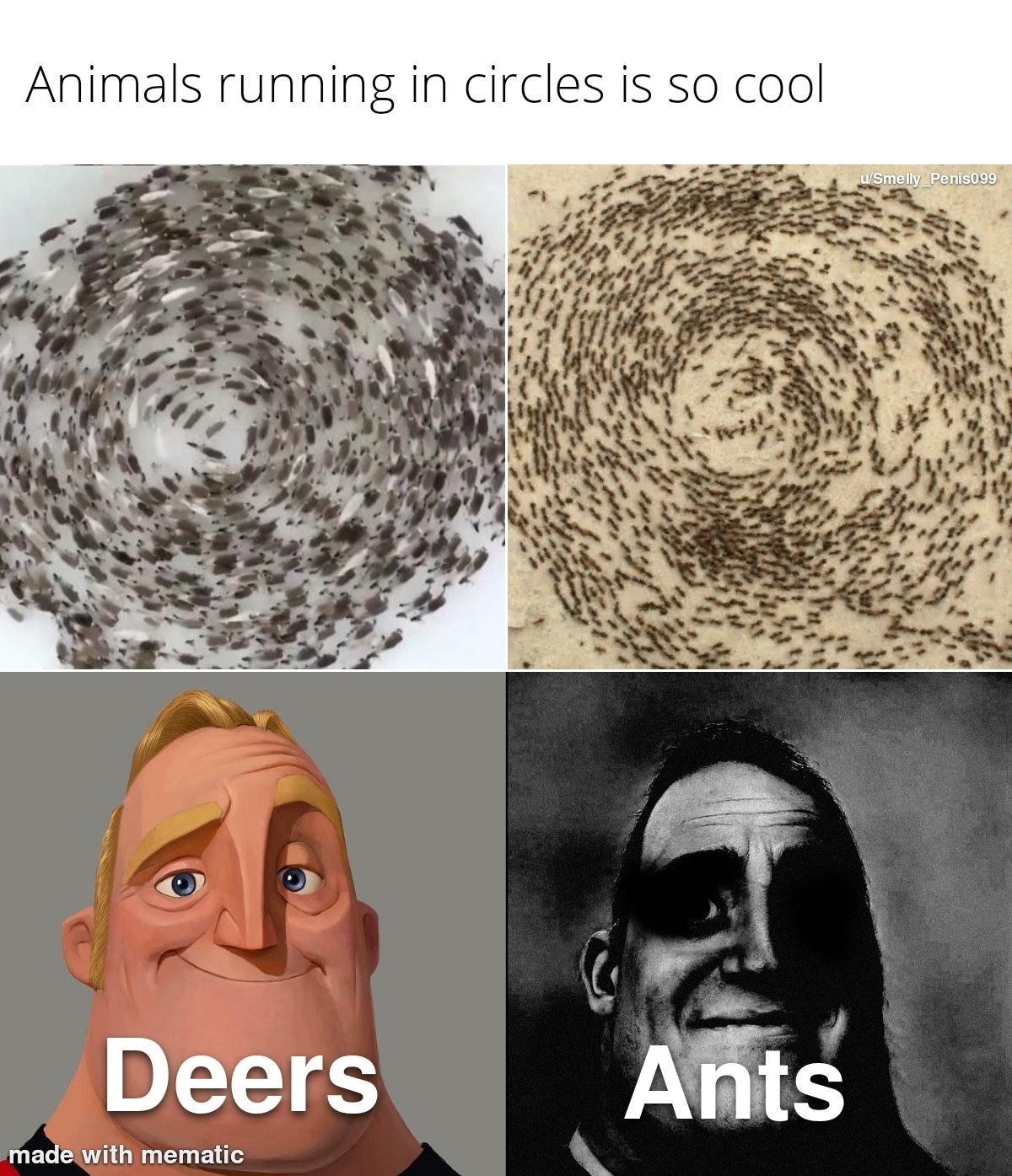this post was submitted on 04 Feb 2024
400 points (95.5% liked)
memes
9680 readers
2500 users here now
Community rules
1. Be civil
No trolling, bigotry or other insulting / annoying behaviour
2. No politics
This is non-politics community. For political memes please go to [email protected]
3. No recent reposts
Check for reposts when posting a meme, you can only repost after 1 month
4. No bots
No bots without the express approval of the mods or the admins
5. No Spam/Ads
No advertisements or spam. This is an instance rule and the only way to live.
Sister communities
- [email protected] : Star Trek memes, chat and shitposts
- [email protected] : Lemmy Shitposts, anything and everything goes.
- [email protected] : Linux themed memes
- [email protected] : for those who love comic stories.
founded 1 year ago
MODERATORS
you are viewing a single comment's thread
view the rest of the comments
view the rest of the comments

The grammar monster in me is going to need a trigger warning next time.
I think the wrong spelling is part of the meme adventure
What if it's different species of deer? Does it work like fish?
Oh deers
Dirz
I would say yes
Oh deer
naw just the one.
It's Durrs to you city folk.
Why is the plural the same as singular that does make no sense
Actually I find it don't make no sense
Oh deer
I'm glad that quick answer is there, no way I'm reading that whole thing.
Why is English so ridiculous that the plural and singular of deer is the same word? And why do people want to keep it that way?
The plural of "moose" is also "moose" but it's not because of English. Moose derives from Algonquian, a Native American language. It kept the same plural ending it had in its original language instead of adopting the normal "s" ending of most English plurals.
I believe the plural of "moose" is actually "meese".
Goose : Geese :: Moose : Meese
Mouse : Mice :: House : Hice
"MOOSES" Sounds like moose jesus
Go speak a language with gendered nouns and leave English alone
This isn't an english specific trait. Lots of languages have something similar.
For instance, in portuguese we do the same for words that end on the letter S.
Ex: Lápis (Pencil), Vírus (Virus), Ônibus (Bus), etc.
John, you can't license away the plural of deer.
I acknowledge that the council has made a decision, but given that it is a stupid-ass decision I've elected to ignore it.
I thought this was common knowledge.
To native English speakers, yes. To non-native speakers, this is yet another bizarre rule they just have to memorize.
Hey, did you know your profile is set to appear as a bot and as a result many may be filtering your posts and comments? You can change this in your Lemmy settings.
Or they could just ignore it because the point of language rules is to communicate unambiguously and the meaning of "deers" is pretty clear while "deer" is ambiguous.
Common knowledge doesn't mean people use it. It's easy to forget even if you studied about it in school.
For example you is singular and plural. But we rarely use you for multiple people nowadays, we just go "you guys", "you all", "all of you", or something else to disambiguate.
Languages move towards easy communication and simplicity.